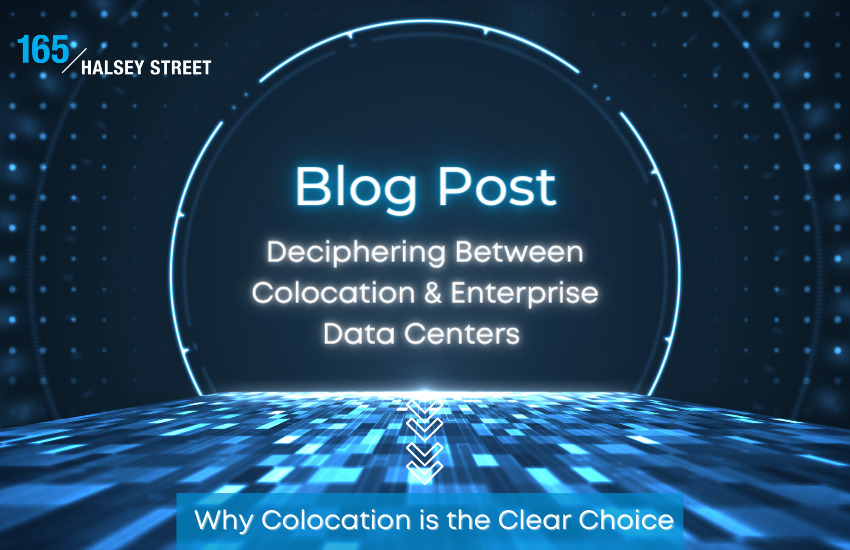The data center industry is constantly changing. There’s never been such a high quantity of data before – and as we all know, that number is consistently escalating. As a business, to successfully scale, you need to ensure your organization can keep up with the changing climate. You need to depend on a secure data center to house your network infrastructure, support IT ops, and provide safety, reliability, and scalability. This is no small feat.
There are multiple different types of data centers available, so choosing the right option for your business can be a daunting task. For today’s blog, we’re going to compare a challenge many businesses have faced: do you venture the route of colocation or build an enterprise data center instead?
Let’s Break it Down
Enterprise data centers are data centers owned and operated by the company itself. The data center can exist both on or off-premises, but the important thing to remember is every single resource is managed by the internal team.
To compare, what’s colocation then? It’s what we do here at 165 Halsey Street! Colocation offers businesses just like yours space, power, and cooling that meet your exact needs. With colocation, you rent space and store your servers and hardware at a third-party facility like ours, while receiving solutions for maximum efficiency and productivity.
What’s a Better Fit for Me?
With an enterprise data center, it’s true – you have complete control over everything in-house with direct access at your physical location. However, this does not come without a cost. It’s been estimated to cost $1,000 per square foot to build your own data center, plus be mindful of the cost to have miles of fiber installed to reach your location. Let’s say you have an extra $12 million sitting around not yet budgeted for (wouldn’t that be nice!), just think about your daily costs to run the facility. Power, cooling, networking costs, plus staffing the facility – the charges begin to run up. What happens if there’s an outage? Or a natural disaster? How will you be prepared to handle these issues as they arise? It’s a lot to think about, which is why colocation facilities are so popular. Businesses can focus on their day-to-day and rest assured their data is being stored safely!
What are the Other Advantages of Colocation?
- High-end security (for both the physical location as well as cyber security)
- Cooling and power costs are spread among customers
- Technical guidance is offered in addition to Remote Hands Services
- A dedicated team
- Easy access
- Complex layers of redundancy offered
- Large pipes of bandwidth to support all needs
- Flexibility when it comes to renting cabinet space
- Overall cost savings & much more
These are just a few of the benefits of colocating. We’d like to share more with you as we learn about the needs of your business and how we can help solve those challenges for you here.
